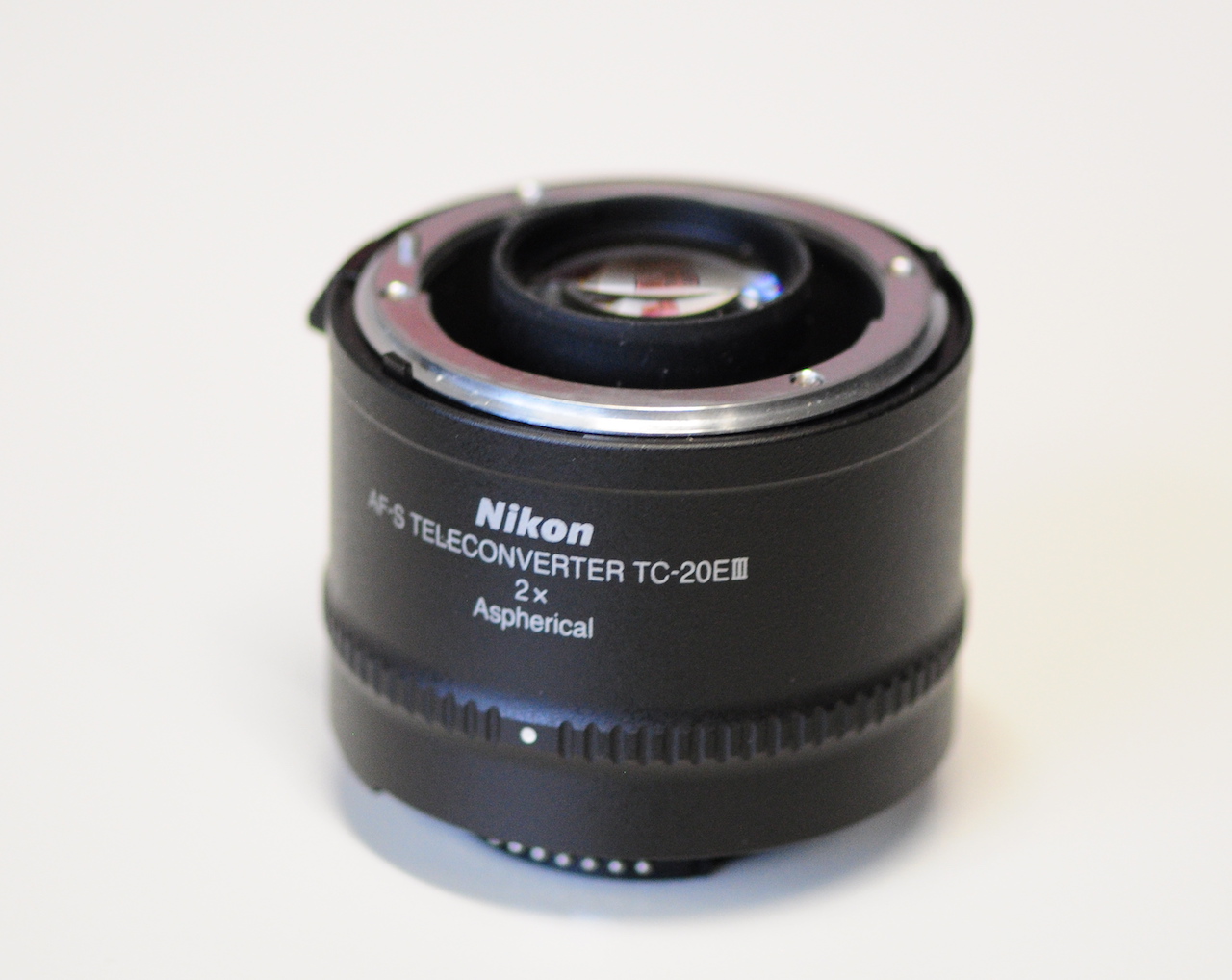TC 20E: Difference between revisions
(Created page with "{{photonavbar}} <div class="flex-row row"> <div class="col-xs-12 col-md-6 col-lg-6"> class=img-responsive </div> <div class="col-xs-12 col-md-6 col-lg-6...") |
No edit summary |
||
| Line 10: | Line 10: | ||
<div class="col-xs-12 col-md-6 col-lg-6"> | <div class="col-xs-12 col-md-6 col-lg-6"> | ||
<div class="panel panel-default"> | <div class="panel panel-default"> | ||
<div class="panel-heading">''' | <div class="panel-heading">'''Maybe not the best idea'''</div> | ||
<div class="panel-body"> | <div class="panel-body"> | ||
A teleconverter basically allows you to trade-off [[focal length]] with [[aperture]]. There are several problems with that. | A teleconverter basically allows you to trade-off [[focal length]] with [[aperture]]. The TC-20E, is a 2x teleconverter. There are several problems with that. | ||
* A 2x increase in [[aperture]] pratically means a 4x decrease in light which has to be compensated by [[exposure time]] and/or [[ISO]] | * A 2x increase in [[aperture]] pratically means a 4x decrease in light which has to be compensated by [[exposure time]] and/or [[ISO]] | ||
* A longer focal length means that you need to hold the lens more steady to achieve the same sharpness, rule of thumb says by the same amount. Effectively, you need 8x more [[exposure time]] and/or [[ISO]] to arrive at the same condition. This is not a little change. | * A longer focal length means that you need to hold the lens more steady to achieve the same sharpness, rule of thumb says by the same amount. Effectively, you need 8x more [[exposure time]] and/or [[ISO]] to arrive at the same condition. This is not a little change. | ||
Latest revision as of 02:18, 24 December 2020
A teleconverter basically allows you to trade-off focal length with aperture. The TC-20E, is a 2x teleconverter. There are several problems with that.
- A 2x increase in aperture pratically means a 4x decrease in light which has to be compensated by exposure time and/or ISO
- A longer focal length means that you need to hold the lens more steady to achieve the same sharpness, rule of thumb says by the same amount. Effectively, you need 8x more exposure time and/or ISO to arrive at the same condition. This is not a little change.
- A f/5.6 lens will end up being f/11, an aperture where diffraction will start limiting the sharpness.
The TC-20E from Nikon is not really a universal solution, it works with a handful of lenses, usually very long lenses. Out of the lenses I have access to only the Nikon 105 (and only the latest model) and Nikon 200-500 work with this adapter.
There is a very good reason why companies made the lenses with the focal length and aperture parameters they made. For some of them, it is possible to stretch this a bit, but from my experience, I can say mostly it has not been worth it. There are cases where you can make a picture better (a full moon picture), but for most of the time, you will not be using this.
These pages are for Amateur Photographers and not really for seasoned photographers and professionals. I have no affiliation or commercial interest with any brand/make. I write from my own experience. I ended up using mainly Nikon, so I am more familiar with this brand than others. See price for notes on pricing as well as photography related links.
